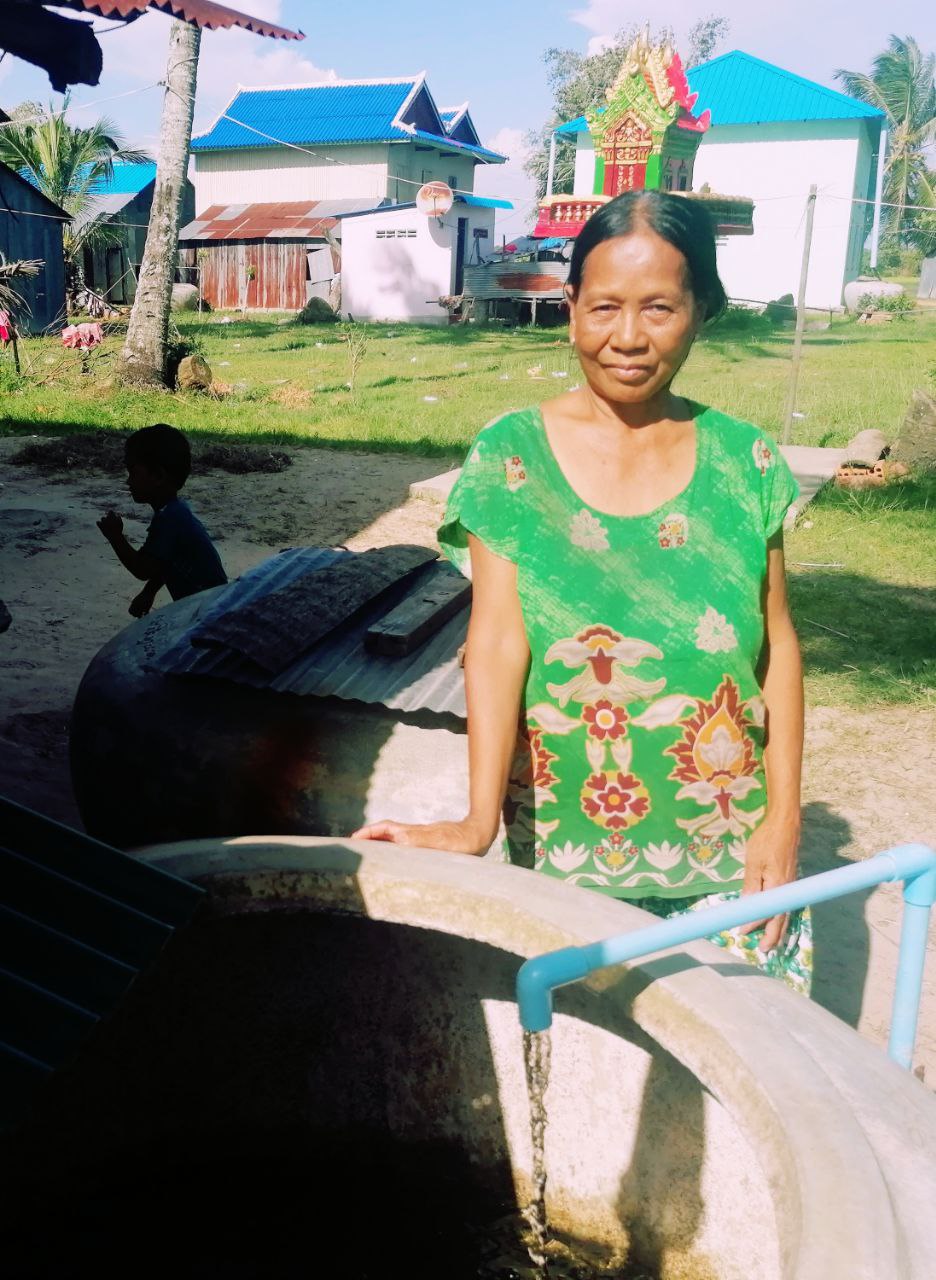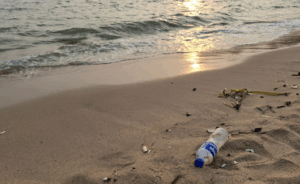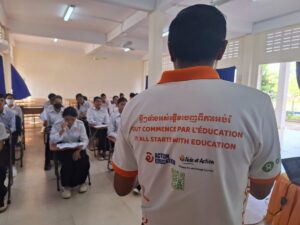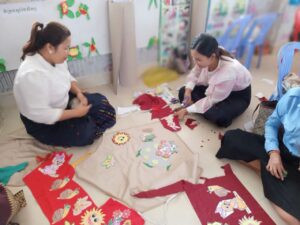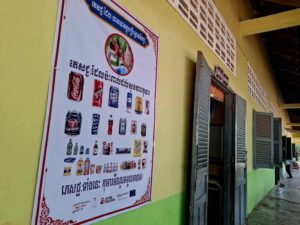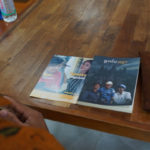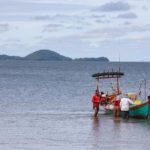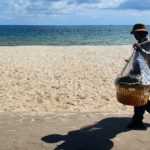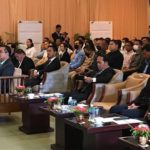According to UN data, only 29% of the population in Cambodia uses safely managed sanitation facilities. [1] Water is essential to health, poverty reduction, food security, ecosystems, education and human rights. Poor countries are becoming increasingly vulnerable to climate change due to a lack of access to clean water. The problem is especially acute in remote areas for low-income households.
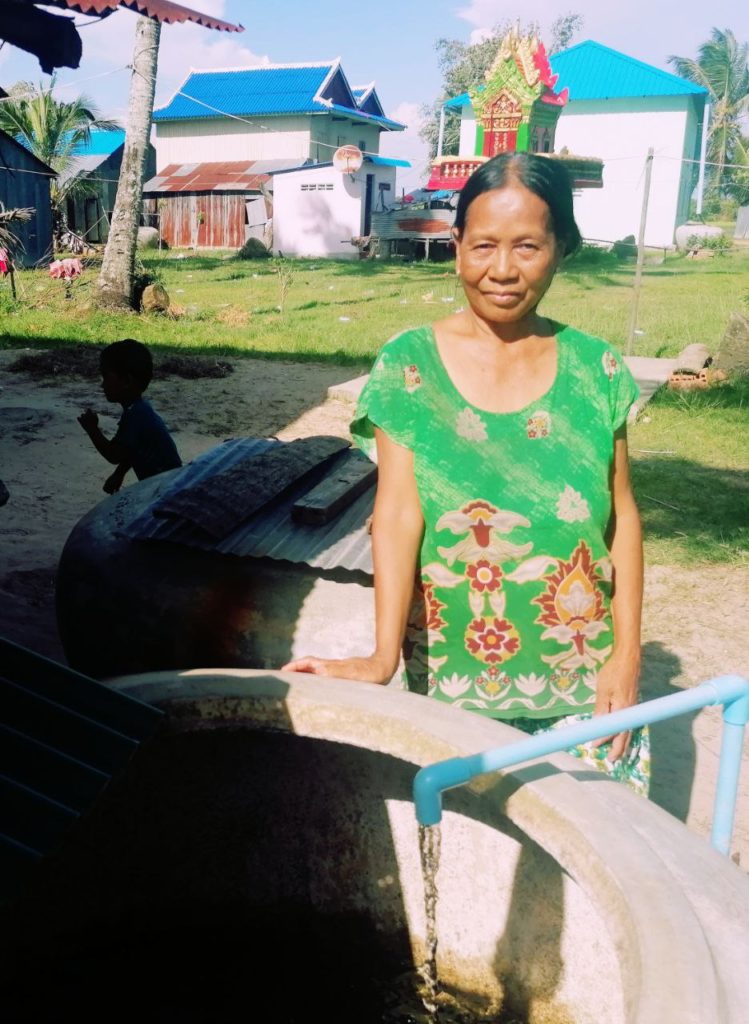
Slab Ta Aom, a grandmother from Svay Tong village in Kampot coastal province, had to walk about three kilometers every day. “I’m not feeling well. My health is not good. I become old,” she says. On her shoulders, she used to carry several liters of water. “I had to walk very far by myself to get water,” she explains, pointing to the mountain with her finger. “It was extremely hard and heavy. It was my routine.” It is now a relief to have access to a consistent supply of safe drinking water.
Her life has changed. “I am very happy to have access to clean water now,” she smiles. “It is better for our health and it is easier for me.” Having a running water tap at home has a significant impact not just on her life but also on the lives of her family. Her grand-children can now wash on a daily basis, rather than just a few times a week. Slab Ta is the mother of two children and the grand-mother of four grand-children. “My son is a fisherman, and my daughter works in a casino near the border. We are not wealthy, you know?”
Action Education (former Aide et Action) leads the CO-SAVED project and distributes co-impact investment funds in the field, which are co-funded by the European Union (EU) and Education Above All’s Educate A Child (EAA’s EAC). The water initiative was, however, co-decided by local water suppliers with a ‘pro poor’ focus to direct interventions to those most in need. The common ambition is to reach over 100,000 people in the coastal provinces of Kampot, Kep, Koh Kong and Preah Sihanouk.
Some of the poorest in Cambodia can not afford the low connection fees to the public water system. For Slab Ta, “it depends on the season. In dry season, we pay about 5,000 riels (1,25 USD) and during the rainy season, only 2,000 riels (0,50 USD). Sometimes, if we can not pay, we just do not pay,” she simply explains. She continues, however, “we can ask the service provider to pay with delay and I think it is OK.”
[1] UNICEF, Cambodia, data, retrieved on 1 September 2023: https://data.unicef.org/country/khm/#water
